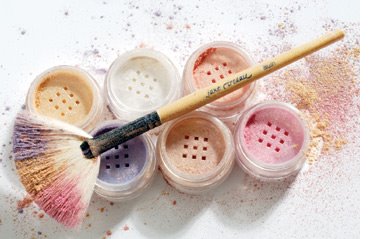 If you feel as if the hands of time have a stranglehold on your wrinkling, aging skin, here’s some news you’ll want to hear: New research shows we may be able to “instruct” the body to make more of at least one biological substance skin needs to look young – and in doing so turn back the hands of time in a major way!
If you feel as if the hands of time have a stranglehold on your wrinkling, aging skin, here’s some news you’ll want to hear: New research shows we may be able to “instruct” the body to make more of at least one biological substance skin needs to look young – and in doing so turn back the hands of time in a major way!
That substance, says experts is collagen. Long believed to play a major role in skin wrinkling, collagen production declines as we age - and for a long time, doctors believed there wasn’t much we could do about that.
But a new report in the current issue of the Archives of Dermatology, says otherwise. Here, researchers from the University of Michigan write that specific advances in skin care made over the past decade have opened the door to the idea that we can "teach" the body to begin producing this vital substance in much the same way it did when we were young.
In essence this means that not only can we stop the hands of time –we have the opportunity to effect a permanent physiological change in skin that can reverse some of the signs of aging - something that has never before been possible.
The best news of all: You don't have to wait a decade or even a year. The study found this was all possible with some dermatologic treatments already in use today.
Old Skin Vs. Young Skin
One of the major differences between “old” skin and “young” skin is the amount and quality of collagen found below the surface. A type of connective tissue, collagen, along with elastin, form a kind of invisible criss-cross netting underneath skin to help support and keep everything in place.
It is, in fact, collagen that gives skin it’s buoyant, dense youthful look and feel, keeping those cheekbones from sliding into your chin and your chin from sliding into your neck - forming a boatload of wrinkles along the way.
But collagen doesn’t last forever. Environmental factors like the sun and pollution – especially chemicals found in cigarette smoke – combine with the natural aging process to damage cells that produce collagen, causing them to become fragmented, or "broken", and no longer able to give skin the support it needs to look young.
The Science of Keeping Skin Young
For a while everyone thought the answer to collagen loss was to simply apply more collagen – as in the explosion of collagen creams hitting the market in the 1980’s. But it wasn’t long before science also realized that collagen applied from the outside wasn’t doing much good on the inside. While skin looked temporarily better, the effects weren’t lasting.
And this is where the new Michigan University research sheds some important new light on some current treatment options.
More specifically the researchers say that when certain treatments make their way to skin cells, they are able to create an environment in which damaged fibroblasts (collagen producing cells) can recover – and begin producing collagen in much the way they did when skin was young! In a sense, these treatments are teaching skin to "act" and eventually look the way it did when we were young.
You can slow down the hands of time – and with the right treatments and products, maybe even reverse some of the nasty effects of aging that have already occurred.
But at the same time, it doesn’t mean you can throw caution to the wind and ignore the things that cause premature skin aging – including sun exposure, smoking, and other lifestyle factors such as a lack of sleep or a nutrient -poor diet.
Experts say all these things still matter, since the longer you can keep your collagen producing cells healthy and functioning, the less repair work you’ll need.
That said, it’s also comforting to know that with the right treatments and ingredients not only can we compensate for some of the damage that has already occurred to skin cells, there is now good evidence to show that at least some of that damaged may be reversible.
To learn more about which specific treatment types the study found to help initiate the production of new collagen, as well as the skin care ingredients shown to effect change visit
the RedDressDiary.com : The Source For Fabulous Women Over 40!




































No comments:
Post a Comment